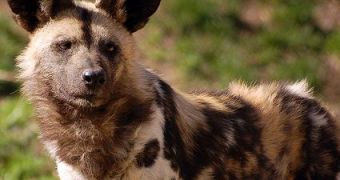Man has done it again! The Lycaon pictus or African Wild Dog and the Acinonyx jubatus or Cheetah are functionally extirpated in North Cameroon. As for lions, the spotted hyena, the stripped hyena or leopards, they are very rare and survive in small groups.
A research program carried out by the Institute of Environmental Sciences of Leiden University, in collaboration with the University of Dschang in Cameroon and the Painted Dog Foundation in Zimbabwe, funded by WWF Cameroon in the Bénoué Complex, North Cameroon and WWF Netherlands, sadly came to these conclusions.
The survey took three years and spread over 4100 km of animal trail resulting in over 1200 camera days and interviews with villagers as well as observations from the field. Park staff, hunting zone managers and local communities started to participate at this project, through training and capacity building. Supervising large carnivores in the region will continue, thanks to provided materials and developed field capacities.
The main cause of the extirpation of wild dogs and cheetahs is the destruction of their natural habitat. The installation of local communities, the loss of prey and vindicatory killing by hunting zones managers slowly decimated these wild populations.
The only way for cheetahs and wild dogs populations to recover in the next decades is to radically improve wildlife conservation strategies. The species are quite strong but continued research, conservation education, direct conservation, capacity building for the future and community development are necessary.
The Umbrella of the Large Carnivore Initiative for West and Central Africa (LCI) has recently been founded and it will continue these activities, as it also has the support of the Prins Bernhard Natuurfonds.
The LCI-W&C AFRICA network is a collaboration between the Leo Foundation, the Netherlands, SPOTS the Netherlands, the Institute of Environmental Sciences of Leiden University (Netherlands), The African Lion Working Group (South Africa), the Laboratoire Ecologique of the University of Abomey (Benin), the Centre of Environment and Development Studies (CEDC) of the University of Dschang (Cameroon), the Regional Lion Network in West and Central Africa (ROCAL) and the Department of Nature Conservation Tshwane University (South Africa).
The LCI-W&C AFRICA is also working with the IUCN Cat specialist group, the IUCN Canid specialist group and the IUCN Hyena specialist group.

 14 DAY TRIAL //
14 DAY TRIAL //